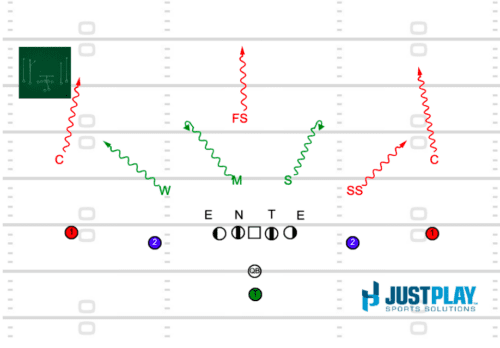How Can Steelers Crack Colts’ Cover 3 Pass Defense?

After two consecutive disappointing home losses, the Pittsburgh Steelers are in must-win mode. Their next opponent comes in the form of the Indianapolis Colts, who are in the same boat, sitting at 7-6 while clinging to an AFC Wild Card spot. With just four games left in the season, the stakes are high with this matchup has the feel of a “loser leaves town” duel. In order for Pittsburgh to get back on the right track in the win column, they’ll need a more efficient day passing the football.
The Colts defensive coordinator is a known commodity Gus Bradley, most famous for his work with the Legion of Boom era Seattle Seahawks defenses. Bradley has remained true to his roots, with a heavy reliance on Cover 2 since taking the job in Indianapolis. While the NFL itself has moved away from this as the meta, this is still the most popularly ran coverage across the football landscape. It’s just that Bradley takes it to a completely different level. According to PFF, He’s deployed some variation of Cover 3 on 57% of snaps this season, first in the NFL and significantly higher than the league average of 35%. To his credit, the Colts defense is hanging around league average, ranking 13th in both drop-back EPA/play and success rate despite not having overwhelming talent on the defensive side of the ball.

Bradley has tinkered with a more diverse coverage menu on the back end in recent weeks, but his bread and butter will always be Cover 3. He prefers to rush four and play zone coverage behind it. While there are different variations, the easiest way to define Cover 3 is: three deep defenders, splitting the field into thirds. The remaining four underneath players are responsible for the curl/flat and hook/curl areas of the field. Those legendary Seahawks teams loaded with Hall of Fame talents fooled the rest of the NFL into thinking this was all you needed to be successful in the NFL. But as legendary football coach Mike Leach once said, “everything works against Cover 3.”
Here are six examples how:
